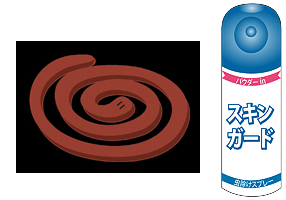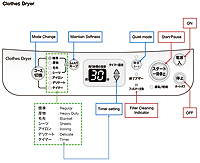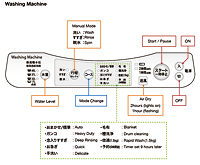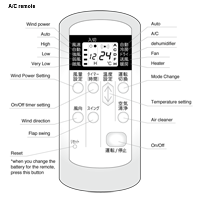Living in a Japanese House/Apartment
Guarantor in Japan
In Japan, when signing a rental contract, it is mostly required to have a guarantor who is either a relative within the third degree of kinship or a Japanese national.
The guarantor is responsible for any issues, such as being unreachable or if there are delays in paying rent, etc.
However, for newcomers to Japan, it can be difficult to find either of these types of guarantors. Therefore, as an exception, OIST will act as your guarantor while you work at OIST.
Smell
Most Japanese apartments have walls that quickly absorb odor due to their structure.
You might get charged the cleaning fee if the smell transfers to the room walls.
Thus DO NOT smoke inside the room, and be careful not to keep the smell inside your room when you use oils, spices, or others that have a strong odor. Please take preventative measures by using ventilation, letting air in, sprays, deodorizer, etc.
Mold
Okinawa is humid throughout the year. Mold will form very quickly if you don't take caution and take the right measures, especially in the summer. Ventilate your apartment, use de-moisturizing agents as often as possible, use dehumidifier/AC dry mode if necessary. De-moisturizing agents can be purchased at stores and placed around the house where mold is likely to form. Leather materials, clothing, and books are particularly susceptible to mold. A mold remover can be used for bathrooms. Even in the winter, it is very important that you leave the windows open as often as possible in order to prevent mold from forming.
Also, molding spots will be charged when you move out from your apartment/house, as it is the tenant's obligation to return the room as it was when you first moved into the apartment/house.
Sink
Do not dump cooking oil or chemicals into the toilet or sink. It will cause a clog.
Front door
When you open the front door, you will enter an area on a slightly lower level than the rest of the house. This is the place you take your shoes off. Japanese generally do not wear outside shoes inside their homes.
Tatami mats
Tatami mats are made of straw and used in a traditional Japanese room. These mats are extremely easy to damage. They quickly get moldy when they get wet; they are also easily dented by placing and dragging heavy furniture on them. If you have tatami mats in your place, please be careful not to damage them! To clean them, use a broom or a vacuum without using any chemicals or cleaning agents unless they are specifically made for tatami mats.
Insects and other creatures
Though you see ants, mosquitoes, and roaches year-round, they are more active in the summertime. Termites are also active during summer. Repellents and insecticides are available in various forms at local stores.
Mosquitos in Okinawa
As Okinawa is a breeding ground for mosquitos, it is quite common to use insect repellant spray (虫よけスプレー), vaporizing repellant (ベープ) or incense called Katori Senko (蚊取り線香). You can buy them from supermarkets and drug stores. Wearing clothes that cover your arms and legs when you are going somewhere near bushes, and standing water is recommended. Mosquitos are quite active in the morning and evening. Some people get severe irritation and swelling, and it is recommended that you take necessary preventive measures to not get bitten by mosquitos.
Drinking-Water
You may notice that the water here tastes different from the water in your home country. And probably you see a lot of bottled water for sale here. However, Japan's water supply system is extremely well monitored, and there is no danger in consuming water taken directly from a water supply outlet, such as a household tap or faucet. Please note that fluoride and other chemicals are not added to the water here. Water quality may deteriorate due to typhoons. You should either boil your water or buy bottled water when such reports are made.
Electric outlets
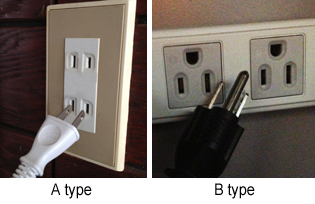
The voltage in Japan is 100 Volts, which is different from North America (110V), much of Europe (230V), and many other regions of the world. The majority of Japanese power outlets are identical to ungrounded (2-pin) "A type" outlets, but "B type outlets" can be found in some places. Older buildings have non-polarized sockets, in which case polarized plugs (one prong wider than the other) would not fit. Most buildings do not have the ground pin. If you need to use a B type and outlets in your place are A-type, you can purchase an extension cord/tap with an A-type plug and B-type socket at an electronics store.
Translation for Electric Appliances (Some Examples)
(1) Clothes Dryer (click images to enlarge)
(2) Washing Machine (click images to enlarge)
(3) A/C remote (click images to enlarge)




